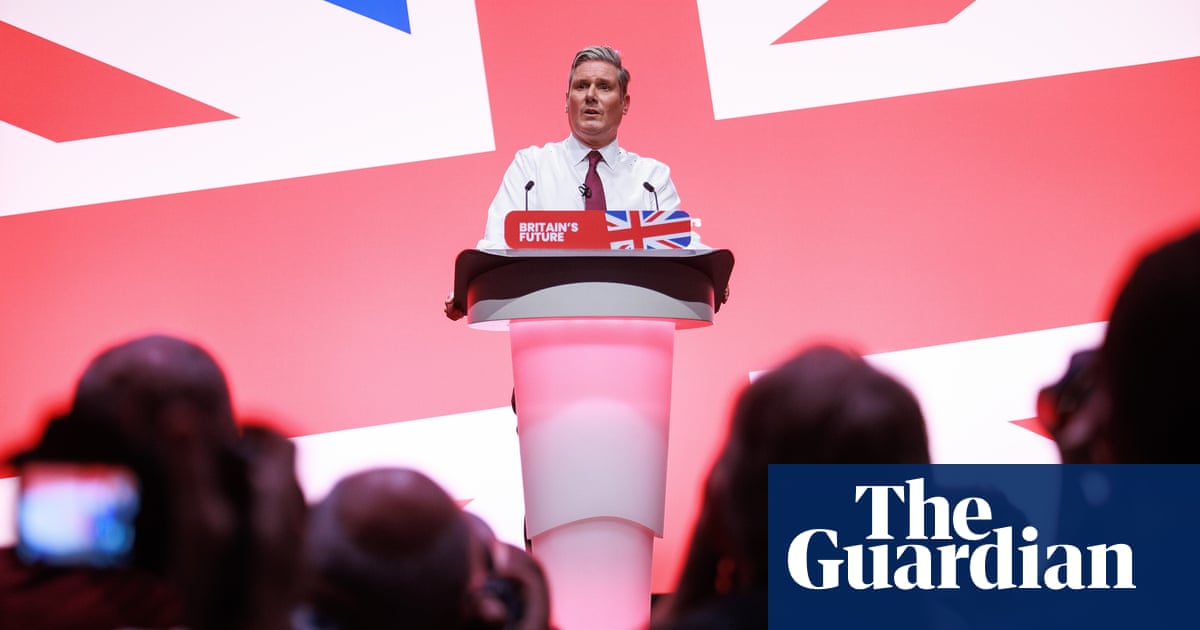
Keir Starmer’s team feared they were at risk of a leadership challenge in the aftermath of conference season, senior sources have said, but they believe Yvette Cooper’s arrival in the shadow cabinet will silence any threat.
It comes as a senior ally of Starmer, his former director of communications Ben Nunn, said that the Labour leader’s reshuffle this week created the team he had long wanted, and said there was now a need to capitalise on the party’s stronger position.
Nunn, speaking publicly for the first time since leaving his role in June, said Starmer had needed more people with experience of government as well as those who knew how to attack from opposition.
“[The reshuffle was] bringing in people who understand what government is and actually what effective opposition is. Jon Ashworth [shadow health secretary moved to work and pensions in reshuffle] is actually really good in that regard … And Yvette [now shadow home secretary] will bring that kind of skill as well,” he told the Guardian’s Politics Weekly podcast.
One shadow cabinet source said Starmer had been “at the moment of maximum danger” but said the Labour leader had now reasserted his authority and been boosted by positive movement in the polls.
Cooper’s appointment should be seen as an endorsement that Starmer will fight the next election, the source said.
“The party recognises now we have him to the next election, there are lots of question marks still among MPs but Yvette’s return indicates there will be no move against him,” the source said. “It’s a show of confidence that was frankly lacking.”
Starmer’s team is also keen to reassert discipline across political advisers and reduce the number of aides to shadow ministers. One of those targeted is the aide to Emily Thornberry, Damian McBride, a veteran political adviser who worked under Gordon Brown, according to two party sources.
The deputy leader, Angela Rayner, who has clashed with Starmer this year, has a slimmed-down team after losing advisers linked to the departed Andy McDonald and Cat Smith.
Several other shadow ministers who have been downgraded from shadow cabinet roles are also expected to lose advisers as the party seeks to cut costs.
Starmer’s spokesperson confirmed on Wednesday that the number of staff was likely to be slimmed down. Stressing the parlous state of the party’s finances, he said: “There are going to be changes to political advisers, but I’m not going to say more on that until we’ve spoken to all of the advisers concerned.”
In his interview Nunn described his time dealing with the fallout of the chaotic May reshuffle, derailed by a major row with Rayner, as “not one of the highlights” of his six years in Labour.
“Some of the accusations that were made that this was some kind of plot and I was involved … my wife can attest that that was not true. But I think it’s fair to say Keir’s got the team he wants now.”
He dismissed the idea that Labour under Starmer had been too timid and said he had shown he could be bold in dealing with his own party. “Keir’s response to the EHRC report, when that came out, was strong, it was decisive. Keir argued internally and externally that Labour should vote for the Brexit deal, because in the end, it was the right thing to do. That was a strong decision.
“I don’t accept this characterisation of Keir as cautious. I think, in the moments that matter, he has shown strength and he wins plaudits when he does. Keir can go out there and say: ‘Look, I fixed the party. It’s ready. We are ready. We have got a good team here. This is my programme. Let’s go.’”
Cooper’s new position on the frontbench leaves the coveted role of home affairs select committee chair open. The favourite to succeed her is Diana Johnson, the MP for Hull North, who has been a longstanding campaigner for victims of the contaminated blood scandal.












